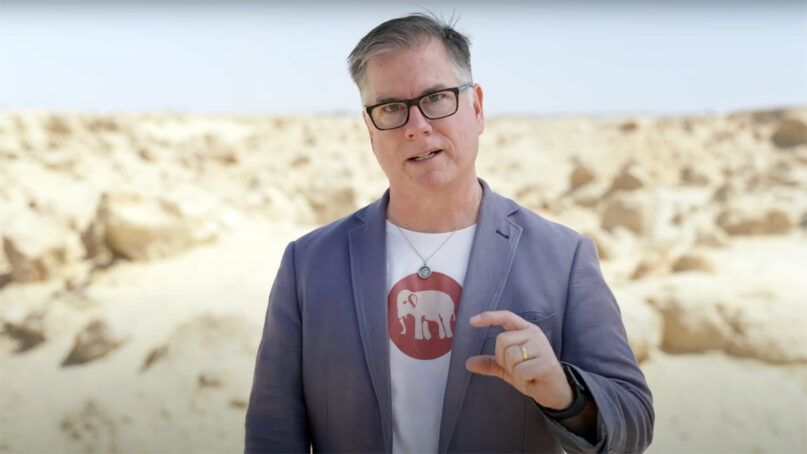Televangelist Kenneth Copeland has announced he will be present at President Donald Trump’s Easter dinner on Wednesday (April 16). The event is part of the Trump White House’s celebration of Holy Week.
“We are excited to announce that Brother Copeland will be with President Trump at a special Easter dinner tomorrow night,” Copeland’s team posted to X on Tuesday. “What a great honor this will be. God bless America!!”
Earlier this week, Trump announced his plans to celebrate Holy Week with several events and ceremonies.
“This Holy Week, Melania and I join in prayer with Christians celebrating the crucifixion and resurrection of our Lord and Savior, Jesus Christ—the living Son of God who conquered death, freed us from sin, and unlocked the gates of Heaven for all of humanity,” Trump said in a presidential message.
RELATED: Kenneth Copeland, 88, Predicts the Date of His Own Death, and It Isn’t Anytime Soon
“During this sacred week, we acknowledge that the glory of Easter Sunday cannot come without the sacrifice Jesus Christ made on the cross. In His final hours on Earth, Christ willingly endured excruciating pain, torture, and execution on the cross out of a deep and abiding love for all His creation,” Trump added. “Through His suffering, we have redemption. Through His death, we are forgiven of our sins. Through His Resurrection, we have hope of eternal life.”
“On Easter morning, the stone is rolled away, the tomb is empty, and light prevails over darkness—signaling that death does not have the final word,” Trump’s message read.
“This Holy Week, my Administration renews its promise to defend the Christian faith in our schools, military, workplaces, hospitals, and halls of government,” said Trump. “We will never waver in safeguarding the right to religious liberty, upholding the dignity of life, and protecting God in our public square.”
Despite criminal convictions and civil judgments against Trump for financial fraud and sexual abuse, the president has for nearly a decade enjoyed strong support among evangelicals—Copeland included.
At a rally in 2022, Trump invited Copeland to offer an invocation, referring to Copeland as “one of the great men of our country.”
RELATED: Most Immigrants Who Are Vulnerable to Trump’s Mass Deportation Policies Are Christians: Report
Copeland said, “By covenant, this nation belongs to God. Therefore, voting is a sacred trust.” Copeland went on to describe Trump as “a man who will do what he says and keep his campaign promises.”






























